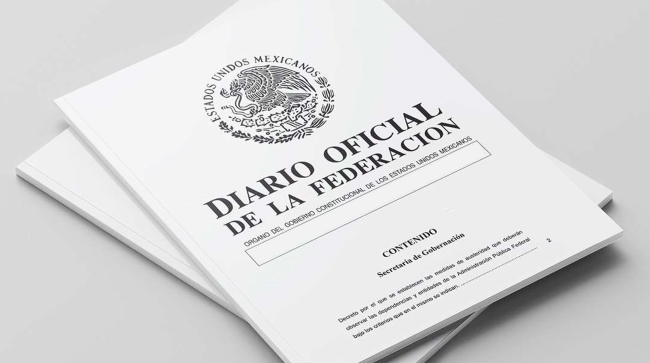📢 Sweeping Legal Reforms Take Effect in Mexico Today: 11 Decrees with Immediate Impact
📅 Mexico City, July 17, 2025 — Starting today, major constitutional and legal reforms come into force, fundamentally transforming key aspects of Mexico’s legal and administrative framework. These changes stem from eleven decrees published in the evening edition of the Official Gazette of the Federation (DOF) on July 16, 2025, which amended over 27 laws and introduced five new pieces of legislation.


🛑 Key changes now in effect across multiple sectors:
As of this Thursday, new rules apply in the following areas:
⚖ Criminal Law
💰 Financial Regulation and Anti-Money Laundering
🆔 Civil Registry and Citizen Identity
📡 Telecommunications and Broadcasting
🛡 Public Security and the National Guard
🚔 Forced Disappearance and National Search System
🏛 Government Procedures and Administrative Law
📌 Main reforms with immediate effect
1. National System for the Search of Missing Persons
Mandatory implementation of a National Missing Persons Alert.
Creation of a Unified Identity Platform for real-time monitoring.
Establishment of a National Investigation Case Database updated every 24 hours.
Mandatory reporting by all institutions (banks, transport, hospitals, prisons, telecoms, rehab centers) on movements linked to missing persons.
Direct penalties for obstructing access to data used in searches.
2. National Guard Law
The National Guard is now fully under control of the Ministry of National Defense (SEDENA).
Granted new powers: criminal investigations, detentions, telecom surveillance, immigration control, and forensic oversight.
Mandatory joint operations with state prosecutors’ offices.
3. General Law on the National Public Security System
Comprehensive redesign of the system.
New operational and technological obligations for state and municipal governments.
4. National Law on Intelligence and Investigation
Establishment of a new national intelligence system.
Direct access to public and private registries, including financial and telecom records.
5. Reform to the Anti-Money Laundering Law and Federal Criminal Code
Introduction of new financial crimes.
Mandatory legal and tax review of civil associations.
Tougher penalties for money laundering activities.
6. Reform to Social Programs and Budgetary Discipline
Amendments to the General Law on Social Development and the Government Accounting Law.
New standards for assigning, controlling, and auditing social spending.
7. General Law on Wildlife
Increased penalties for illegal exploitation, trafficking, and commercial use of natural resources.
8. Reform on Economic Competition and State-Owned Entities
New penalties for public and private companies engaged in monopolistic practices.
Strengthened oversight of state-owned enterprises.
9. Railway and National Assets Reform
Legal restructuring of national railway and highway operations.
New regulations for the use, concession, and exploitation of federal assets.
10. National Law for Bureaucratic Streamlining
Repeal of the Law on Regulatory Improvement.
Creation of the National Agency for Digital Transformation.
Elimination of state-level regulatory improvement commissions.
11. New Telecommunications and Broadcasting Law
Elimination of local regulators.
Centralized federal oversight.
New rules on content, licenses, and concessions.
🔍 Critical Issues to Watch
⚠ Biometric CURP required for all procedures
Although no exact deadline has been set, the use of biometric CURP (Unique Population Registry Code) is expected to become mandatory by February 2026. Implementation will be gradual:
The Unified Identity Platform must be launched within 90 days.
A national program to collect biometric data, including for children and adolescents, must begin within 120 days.
All public and private entities will be required to adopt biometric CURP as a mandatory prerequisite for any procedure.
⚠ Military and National Guard access to personal databases
The military and National Guard now have direct and unrestricted access to national databases, including personal, financial, property, and digital records.
⚠ Companies must report suspicious activity
All financial, technology, transport, and service companies are legally obligated to report unusual transactions and movements involving persons under investigation.
⚠ New rules on detention and digital tracking
The new framework allows for immediate detention and real-time digital tracking, even during administrative procedures.
📄 Official Publication
To review the full text of the legal reforms and their justifications, consult the official version of the Official Gazette:
🔗 Evening Edition – July 16, 2025 (PDF)
Have questions about how these reforms affect your business, organization, or personal legal situation?
📩 Contact our legal team or schedule a consultation today.
